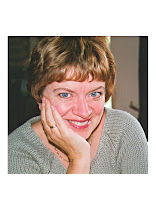 The first book for children I enjoyed this year was Frances Hardinge's Gullstruck Island ( Macmillan), which came out in January. It took some getting into and runs to around 500 pages but it was thrilling to see this very unusual writer begin to command her talent.
The first book for children I enjoyed this year was Frances Hardinge's Gullstruck Island ( Macmillan), which came out in January. It took some getting into and runs to around 500 pages but it was thrilling to see this very unusual writer begin to command her talent.The first Hardinge title, Fly by Night, won the Branford Boase award. Reviewing it in the Guardian, the late Jan Mark greeted Hardinge as a "hugely talented writer of tireless invention and vivid prose" and Jan was hard to please.
But she also added: "Every incident and description is so embellished with similes and dependent clauses that the narrative is left hanging about like a disconsolate bloke in Miss Selfridge, abandoned outside the fitting rooms while the style lingers to admire itself in the mirror."
That was it: a great natural talent that needed an editor with a ferocious blue pencil - or at least a dab hand for Track Changes. There wasn't much sign that she'd found one in the second novel, Verdigris Deep. which took us out of the parallel world of Mosca Nye in Fly by Night and into a sort of Diana Wynne Jonesy world of meanacing shopping trolleys and hedges and a spirit trapped deep in a well.
But with Gullstruck Island, it seems as if Hardinge is at last learning to sit the wild horse of her imagination; it might still be going at a hell of a lick and over more miles than many will be able to travel with her but there's a stronger sense of a controlling hand on the reins.
This isn't a book review - the Book Maven probably isn't going to do those - so I won't summarise the plot. Besides, I reviewed the novel for Armadillo (www.armadillomagazine.co.uk Spring 2009). But it gave me pause for thought and the thought was this: who is going to read a book like this?
Fly by Night sold well in the US, where Hardinge has done signing tours. And her next novel will be a sequel to that, so should build on her success. But a book like this requires stamina. Not the 500 pages thing. As Patrick Ness mentioned in his Guardian review, JK Rowling has set the bar looong for fantasy fiction (Ness's own The Knife of Never Letting go has 496 pages, by the way).
No - it's the ability to hold all the plot threads in the reader's mind and cope with the incidental spirallings of imagination along the way. The invention is just too prolific. It seems churlish to complain about that though, when so many books just have the one idea that they bash you over the head with till the plot is over.
And I'm not complaining. I'm really interested in the kind of reader that likes non-obvious books. I think there are enough of them across different countries and over time to create a respectable audience for demanding fiction and unuusual prose. but today's market wants a mass appeal now, in the first few months of a book's life. It wants synchronic not diachronic readerships, if you like.
EPOS won't wait, the way a nurturing publishing house and skilled editor used to. Fortunately, Hardinge's work isn't that much of niche taste to put her in danger of losing her public. But this latest book does make me wonder about writers who don't look for the lowest common denominator. I hope there will always be a place for them in a world where young readers are offered so much that is ersatz and formulaic.
